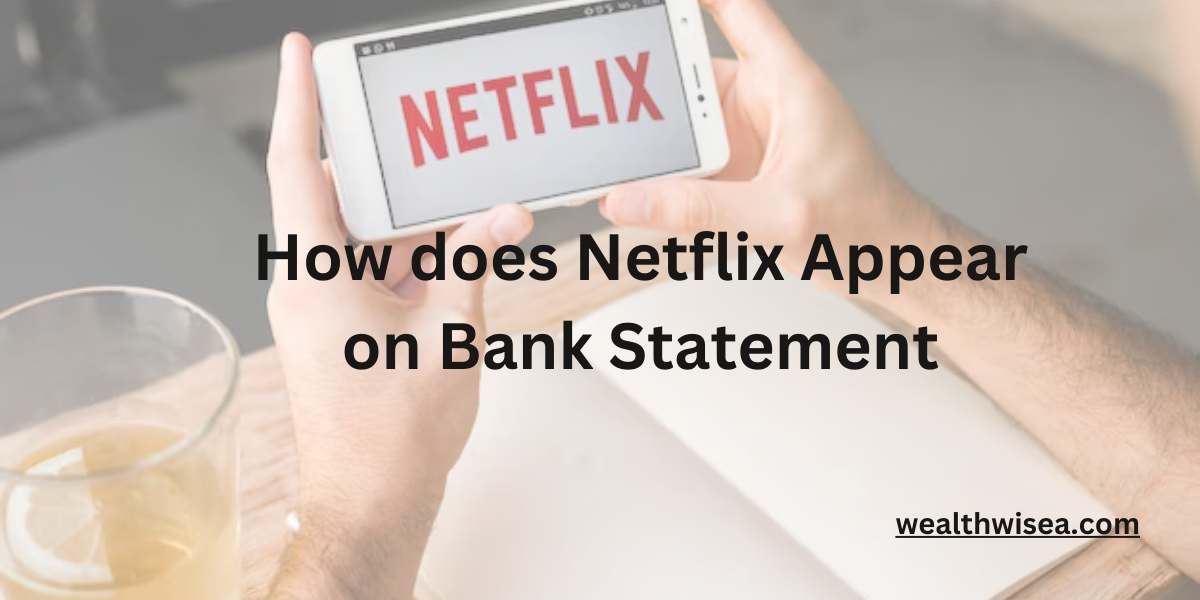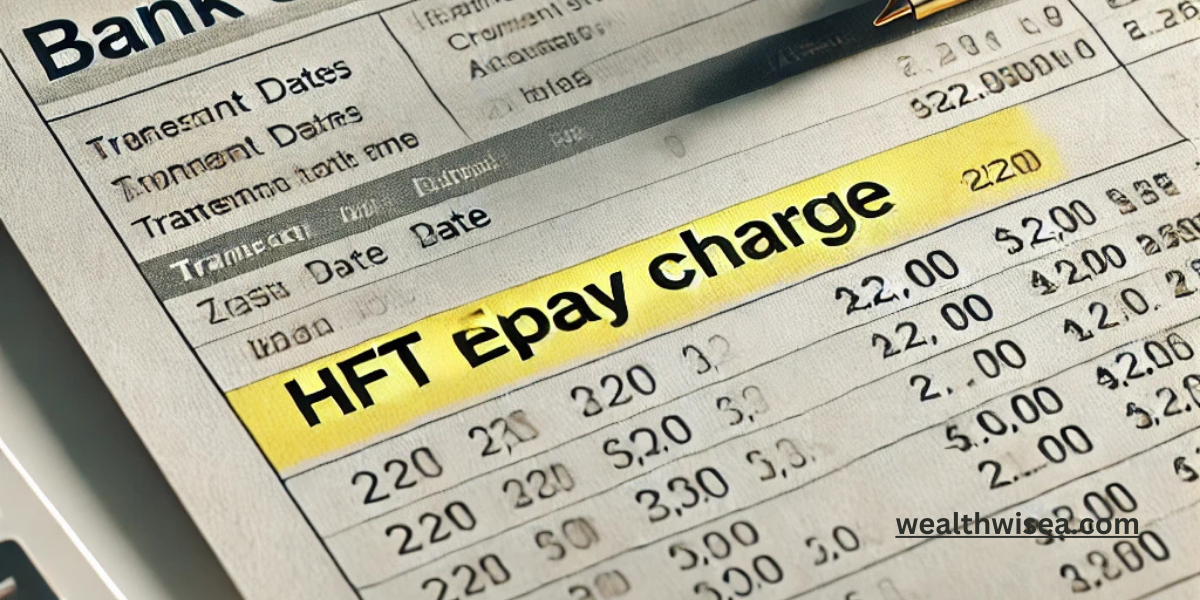What is Fenix Internet on Bank Statement?

Many people have come across the name Fenix Internet on their bank statement and immediately felt confused. It’s not unusual for banking transactions to show unfamiliar names, but when these names don’t ring a bell, it can cause quite a bit of concern. Most users assume these charges are fraudulent, while others wonder if they’re connected to a forgotten subscription or a service they didn’t know used this particular billing name.
If you’ve recently noticed a Fenix Internet charge on your account, you’re not alone. In this guide, we’ll unpack exactly what Fenix Internet means on your bank statement, where it likely originates, and the steps you should take to confirm whether it’s legitimate. We’ll also cover related topics, such as whether Fenix Internet LLC is linked to OnlyFans, what Fenix International is, and how free trials from OnlyFans might appear on your statement.

What is Fenix Internet on Your Bank Statement?
When you see Fenix Internet on your bank statement, you might automatically assume it’s suspicious. However, many times it’s a legitimate charge related to an online service or subscription you’ve signed up for. It’s common for companies to use third-party billing services or payment processors that list transactions under unfamiliar names.
That being said, there are several possible reasons for seeing Fenix Internet on your bank statement:
1. Online Subscription Service
One of the most common reasons people encounter the Fenix Internet label is due to a subscription to an online service. Whether it’s a media platform, a content-sharing website, or a digital goods service, some companies bill through third-party payment processors to keep things discreet. The name Fenix Internet may be associated with this type of transaction.
Think back to whether you recently subscribed to any service, especially those that offer premium content, access to exclusive digital products, or paid memberships. In many cases, the connection to Fenix Internet becomes clearer when you recall a service you signed up for under a trial or monthly membership plan.
2. Digital Purchases
Another explanation for the Fenix Internet charge is related to digital goods. Many people don’t realize how often they make digital purchases these days. Everything from ebooks, software, and in-app content to online learning tools can be billed under different names. Fenix Internet could simply be the payment processor behind the purchase of a digital product you recently made.
3. Free Trials That Auto-Renew
One of the more frustrating aspects of online subscriptions is free trials. Often, users sign up for a free trial with the intent of canceling before the trial expires, but then forget to do so. As a result, when the free trial ends, the service automatically renews into a paid plan, and Fenix Internet could represent that first charge.
This situation occurs frequently with streaming services, subscription boxes, or content-sharing platforms. If you recently signed up for a free trial that you’ve since forgotten about, this may explain the charge.
4. Fraudulent or Unauthorized Charges
While it’s important not to panic right away, there’s always the possibility that a Fenix Internet charge could be unauthorized. Online fraud and identity theft are real threats, so if you genuinely don’t recognize the charge after reviewing your recent activity, it’s worth investigating further with your bank.
If this happens to be the case, we’ll guide you through the steps to dispute the charge and resolve any issues.
Investigating Fenix Internet: How to Confirm the Legitimacy of the Charge
If you’re not entirely sure where the Fenix Internet charge comes from, there are a few steps you can take to investigate its legitimacy:
1. Review Your Digital Purchases and Subscriptions
The first step to identifying a Fenix Internet charge is to look back at your recent digital purchases and subscriptions. Since this name may not directly match the service you signed up for, think about any recent transactions, especially in the realm of digital goods or online memberships. Going through your email or reviewing your order history on platforms you frequently use could help clear things up.
2. Check for Auto-Renewing Subscriptions
Auto-renewing subscriptions are another common source of confusion when it comes to charges like Fenix Internet. It’s not unusual for people to forget about a subscription service, only to be surprised by a charge months later when it renews automatically. If you recently signed up for a free trial or monthly membership that converts to a paid service, this could be the answer.
3. Contact Your Bank for More Information
When reviewing your transactions doesn’t reveal any useful information, the next step is to contact your bank directly. Most financial institutions can provide additional details about a transaction, such as the merchant’s name or even the purchase’s date and location. This could help you determine if Fenix Internet is legitimate or something to be concerned about.
4. Dispute the Charge If Necessary
If you’ve exhausted all other possibilities and still can’t figure out what the Fenix Internet charge is for, it’s time to consider disputing the charge. Your bank can help guide you through the process, but it typically involves submitting a dispute claim, after which the bank will investigate the charge further. Make sure you act promptly to prevent further fraudulent activity.
Is Fenix Internet LLC Linked to OnlyFans?
A common question that arises when people see Fenix Internet on their bank statements is whether it’s connected to OnlyFans, a popular subscription platform for adult content and more. The answer is somewhat complicated. While Fenix Internet LLC is not directly tied to OnlyFans, the confusion arises because OnlyFans uses similar billing names, such as Fenix International, for some of its transactions.
If you’re an OnlyFans user or recently interacted with the platform, a Fenix International or Fenix Internet charge might appear on your statement. This billing approach provides a level of discretion for users, allowing charges to show under more generic names rather than explicitly referencing OnlyFans.
What is Fenix International of?
Fenix International is the parent company behind OnlyFans, and it handles the financial processing for the platform. If you see Fenix International on your bank statement, it’s likely related to a transaction made through OnlyFans, whether it’s a subscription to a creator’s content or a purchase made within the platform.
For privacy reasons, OnlyFans doesn’t display its name directly on your bank statement. Instead, they use Fenix International or similar names to ensure discretion for their users.
Does Free OnlyFans Show on Bank Statements?
No, free subscriptions to OnlyFans do not appear on your bank statement. Since no payment is made for free content, there’s no financial transaction to record. However, if you make any purchases, such as subscribing to paid content or tipping a creator, that transaction will appear on your bank statement under names like Fenix International.
It’s important to note that even small transactions, like a tip or a one-time payment, can show up as Fenix International, depending on how OnlyFans handles its billing for that specific purchase.
Dealing with Unfamiliar Bank Charges
Seeing unfamiliar charges on your bank statement can be alarming, but there are clear steps to take to protect your finances. Whether it’s a Fenix Internet charge or something else you don’t recognize, here’s a simple approach:
1. Stay Calm and Investigate
Before jumping to conclusions, take a moment to review your recent transactions. As mentioned earlier, many times these charges are connected to subscriptions or services that use different billing names.
2. Contact Your Bank Immediately
If you can’t identify the charge after reviewing your activity, contact your bank or credit card provider. Most banks are equipped to give you detailed information about a specific transaction, which can help shed some light on the issue.
3. Dispute the Charge If It’s Fraudulent
If you determine that the charge is fraudulent, file a dispute with your bank as soon as possible. Most banks offer consumer protections for unauthorized transactions, and they’ll investigate the charge and, if necessary, issue a refund.
Is Fenix Internet a Scam?
While seeing Fenix Internet on your bank statement may raise a red flag, it doesn’t always indicate a scam. Often, it’s a legitimate charge linked to an online service or digital product. However, it’s still important to approach unfamiliar charges cautiously and investigate them fully.
Scams and fraudulent charges do happen, so never ignore transactions you can’t explain. If you’re unsure, the safest course of action is to contact your bank for assistance and, if necessary, dispute the charge.
Avoiding Future Confusion with Bank Statements
To avoid unnecessary stress about unfamiliar charges in the future, there are some practical steps you can take:
- Track Your Subscriptions: Keep a list of all your active online subscriptions, including free trials. This makes it easier to recognize charges when they appear on your bank statement.
- Set Alerts for Auto-Renewals: Many banks offer alert services that notify you when a recurring charge is about to hit your account. This can give you time to cancel any unwanted subscriptions before you’re billed.
- Use a Separate Card for Online Purchases: Some people prefer to use a dedicated card for all their online purchases. This helps them keep track of digital transactions more easily.
- Check Your Statements Regularly: Make it a habit to review your bank statements each month. This allows you to spot unfamiliar charges early and address any issues before
Conclusion
Seeing Fenix Internet on your bank statement can be confusing, but more often than not, it’s linked to legitimate online services or digital purchases. In many cases, it’s simply a billing label used by platforms like OnlyFans, which processes payments under names like Fenix International to offer a layer of privacy. That said, it’s always important to review your digital purchases, check for active subscriptions, and reach out to your bank if you cannot identify a charge. If the charge is fraudulent, quick action can help resolve the issue before it escalates.
Remember, staying informed about your transactions can save you from unnecessary worry and help you spot anything suspicious early. Keep track of your subscriptions and regularly review your bank statements to ensure all charges are legitimate. If you see Fenix Internet on your statement and it still doesn’t make sense, don’t hesitate to contact your bank and ask for clarification.
For more information on other unfamiliar charges, you can read about What is Genesis FS Card on Bank Statement or check out What is MSPBNA on Bank Statement to learn about how these transactions might appear on your statements.
By staying vigilant and understanding the nature of online transactions, you can manage your finances effectively and with confidence.
FAQs
1. What is Fenix Internet on bank statement?
Fenix Internet on your bank statement is typically a billing descriptor used for online services, including digital subscriptions like those for OnlyFans. It acts as an intermediary, processing payments under a different name for privacy and discretion.
2. Is Fenix Internet LLC connected to OnlyFans?
Yes, Fenix Internet LLC often appears on bank statements when you make purchases or subscribe to content on OnlyFans. This is done to provide privacy and ensure the actual service, like OnlyFans, doesn’t directly show up on your financial records.
3. What is Fenix International of?
Fenix International is the parent company behind OnlyFans, handling the payment processing and billing for the platform. It ensures discretion, so users see Fenix International or Fenix Internet on their bank statements rather than “OnlyFans.”
4. Does free OnlyFans show on bank statements?
If you’re subscribed to free content on OnlyFans, it usually won’t show up on your bank statement unless you make purchases like tipping creators or paying for premium content. Only then would you see Fenix Internet or Fenix International on your statement.
5. How do I dispute a Fenix Internet charge on my bank statement?
If you notice an unrecognized or fraudulent charge from Fenix Internet, first verify whether it’s linked to an active subscription or digital service, like OnlyFans. If it’s unfamiliar, contact your bank to dispute the charge and request an investigation.
6. Can Fenix Internet charges be for services other than OnlyFans?
While Fenix Internet is primarily linked to OnlyFans, it’s possible that other digital platforms may use similar billing names. However, it’s mostly associated with online subscription services.
7. How do I prevent Fenix Internet charges from showing up on my bank statement?
If you want to avoid future charges from Fenix Internet, you’ll need to cancel your subscriptions or purchases associated with OnlyFans. You can manage these subscriptions through the platform’s account settings and prevent further payments.
8. Is Fenix Internet a scam or legitimate charge?
In most cases, Fenix Internet is a legitimate charge related to subscriptions or purchases from platforms like OnlyFans. If you don’t recognize the charge, review your recent activity to ensure it’s not from a service you forgot about. If you still suspect it’s fraudulent, contact your bank.
9. What should I do if I didn’t authorize a Fenix Internet charge?
If you find a Fenix Internet charge that you didn’t authorize, contact your bank immediately to dispute the charge. They can assist with investigating and possibly refunding the amount if it’s found to be fraudulent.
10. Can I remove Fenix Internet from my bank statement?
No, once a transaction is processed, you can’t remove it from your bank statement. However, you can avoid future charges by canceling any subscriptions linked to Fenix Internet, such as those from OnlyFans.
For more information on other unfamiliar charges, you can read about What is Genesis FS Card on Bank Statement or check out What is MSPBNA on Bank Statement to learn about how these transactions might appear on your statements.
These FAQs, along with the links, provide a comprehensive resource for readers seeking clarity on the Fenix Internet charge and related topics.
4o mini



